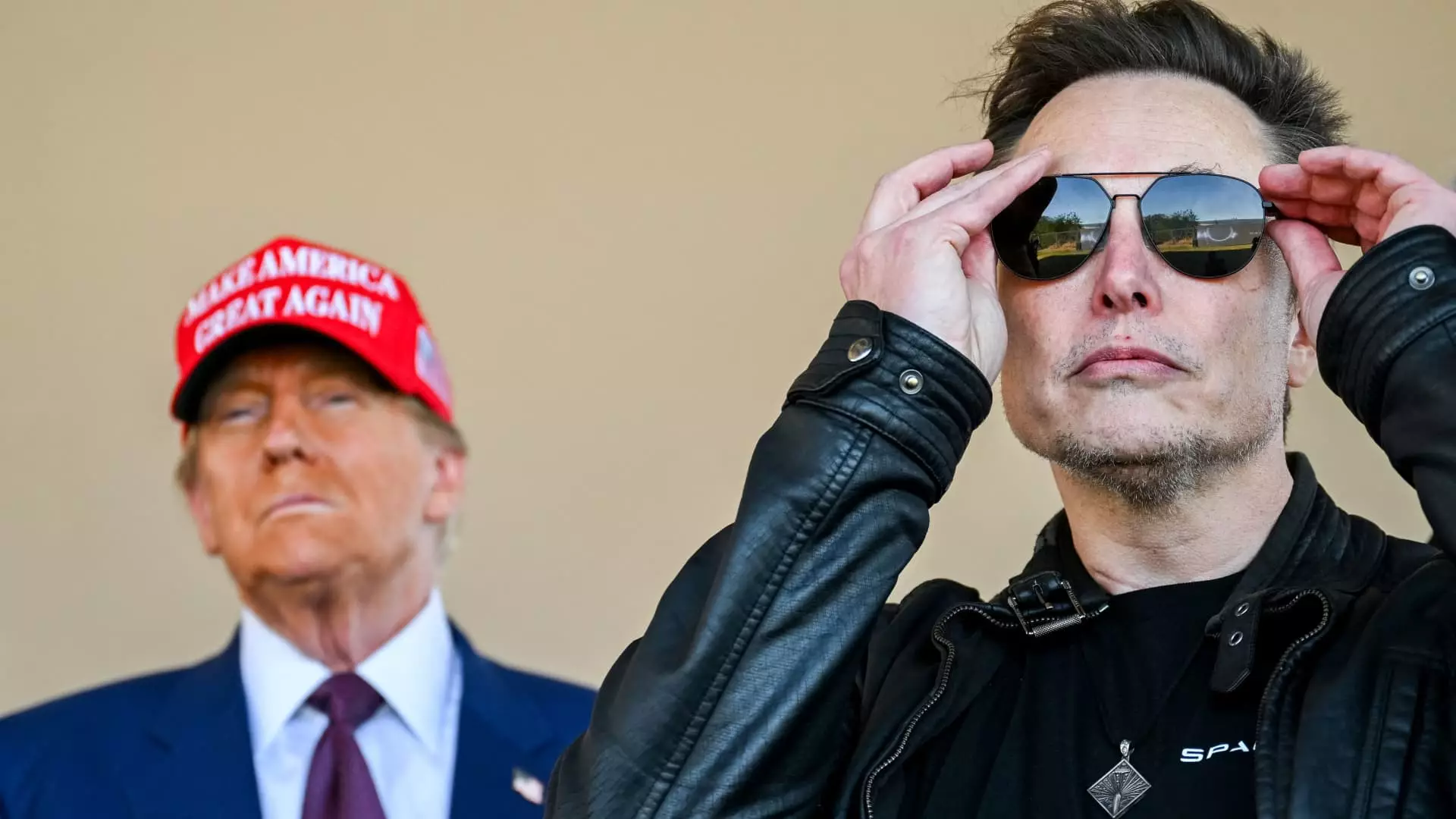Elon Musk stands as a towering figure in the realm of modern entrepreneurship, helming a diverse array of companies that range from electric vehicles to aerospace engineering. His business portfolio includes Tesla, renowned for revolutionizing the automobile industry; SpaceX, a front-runner in commercial space travel; Neuralink, which aims to bridge the gap between humans and machines; and Boring Company, addressing urban transportation issues through tunneling technology. Additionally, Musk’s latest venture into artificial intelligence, xAI, seeks to tackle some of the most challenging questions surrounding AI development. This multifaceted empire signifies not merely a collection of successful companies but also a unique ideology aimed at reshaping several industries across the globe.
One of the most critical aspects of Musk’s ventures is their symbiotic relationship with federal contracts. SpaceX, in particular, has excelled in securing substantial government contracts, reportedly receiving over $19 billion. The potential for even greater gains is further bolstered by political dynamics, especially if a second Trump administration emerges. This scenario might pave the way for more lucrative federal contracts, continually reinforcing Musk’s financial foundation. Therefore, the intertwining of his business goals with government relationships highlights a strategic approach to innovation—one that seeks both public and private financing avenues.
Elon Musk has repeatedly vocalized his dissent against governmental regulations, often characterizing them as cumbersome obstacles impeding technological progress. The recent formation of the Department of Government Efficiency (DOGE), co-led by Musk and former presidential candidate Vivek Ramaswamy, underscores a concerted effort to identify and dismantle regulatory hurdles. In their shared initiatives, Musk and Ramaswamy advocate for a profusion of reforms including deregulation, administrative streamlining, and intensified auditing. This perspective raises pivotal questions: can deregulation truly lead to liberated innovation, or may it foster an environment lacking adequate oversight?
The advocacy for reduced regulatory constraints often implies a trade-off starkly positioned against accountability. While Musk and Ramaswamy highlight the need for a critical examination of existing federal regulations, particularly those that have survived without firm legislative backing, it is essential to consider the role these regulations play in ensuring safety and accountability across industries. For example, the Pentagon’s series of unsuccessful audits raises concerns over financial management—an issue that amplifies the conversation around strategic cuts in oversight. Herein lies the conundrum: how can innovation flourish while maintaining essential components of accountability?
As Musk’s empire continues to evolve and potentially shifts with political tides, the future of innovation rests upon a precarious balance between entrepreneurial enthusiasm and the necessary frameworks that govern industrial practices. The interlacing of significant financial interests and political ambition raises critical ethical considerations, especially in the context of public welfare. As Musk leads initiatives to streamline government operations and curtail regulations, it becomes imperative to monitor how such actions influence the rapidly changing landscape of technology and innovation. The unfolding narrative surrounding Elon Musk will undoubtedly remain a focal point in discussions about modern business, governance, and the ethics of innovation.

